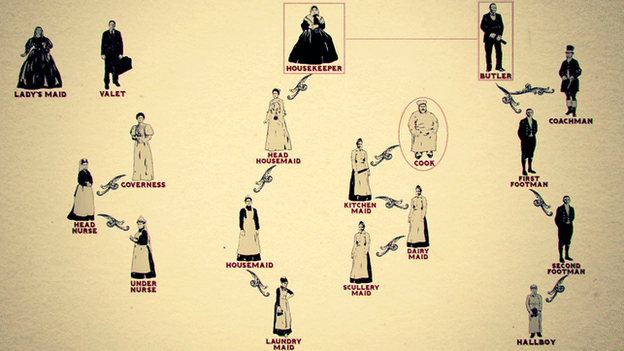
Page Title
Resources
Helpful links, resources, details about the novels in the blog posts that may help you in your reading of Neo-Victorian novels.
Possession
Possession is by A.S. Byatt. Possession is about two academic scholars who are exploring, respectively, Randolph Henry Ash and Christabel LaMotte. Their research lead them to each other and they team up to find out how the two poets are connected and the mysterious past that has been forgotten.
Important Quotes:
"He knew her, he believed. He would teach her that she was not his possession, he would show her that she was free, he would see her flash her wings." (15.36)
"For the last year perhaps I have been in love with another woman. I could say it was a sort of madness. A possession, as by daemons. A kind of blinding. At first it was only letters—and then—in Yorkshire—I was not alone."
"When I feel—anything—I go cold all over. I freeze. I can't—speak out. I'm—I'm—not good at relationships. […] I feel as she did. I keep my defences up because I must go on doing my work. I know how she felt about her unbroken egg. Her self-possession, her autonomy. I don't want to think of that going. You understand?" (28.168-77)
"It was this urgency above all that moved and shocked Roland. He thought he knew Ash fairly well, as well as anyone might know a man whose life seemed to be all in his mind, who lived a quiet and exemplary married life for forty years, whose correspondence was voluminous indeed, but guarded, courteous, and not of the most lively. Roland liked that in Randolph Henry Ash." (1.22)
Discussion Questions:
In what ways are Maud and LaMotte similar. What comparisons does the novel try to draw between the two of them?
Is Mortimer Cropper's study the best way of preserving history or is Maud and Roland's?
How do you interpret Blanche, and Blanche's relationship with LaMotte?
Links:

Alias Grace
Written by Margaret Atwood, this is a take on a convicted woman who was accused of being an accessory to murder. This is her testimony decades later. Grace Marks: innocent, or guilty?
Margaret Atwood is a seasoned writer who writes in many genres. She's written clifi, poetry, and many more. She masterfully tells stories that gets her readers thinking about the future, and is a fantastic worldbuilder.
Important Quotes from Alias Grace:
"When you are in the middle of a story it isn’t a story at all, but only a confusion; a dark roaring, a blindness, a wreckage of shattered glass and splintered wood . . . It’s only afterwards that it becomes anything like a story at all."
"“If we were all on trial for our thoughts, we would all be hanged.”
"Murderess is a strong word to have attached to you. It has a smell to it, that word—musky and oppressive, like dead flowers in a vase . . . I would rather be a murderess than a murderer, if those are the only choices."
Historical Context:
Grace Marks is a servant from about the time she turns thirteen until she is imprisoned. There are important historical contexts to how the Victorians viewed servants. Victorian servants were expected to take care of the whole house: do the washing, the cooking, cleaning, etc and also stay out of the way. They were paid very little, and had few holidays. Grace refers to the hierarchy in the novel and there is one.
Discussion Questions:
Does gender factor into the way Grace is treated throughout the narrative? How/why? Examples?
What are tropes that Atwood uses in the narrative?
What place does mental illness take in this narrative and how are they viewed?
Is there reason to believe that she is innocent or guilty? What is your proof?
Links:
The Servants of a Victorian Household

Arthur & George
Written by Julian Barnes, Arthur & George is about Arthur Conan Doyle and George and George Edalji. The story starts off with their childhoods but is mainly about the miscarriage of justice that occurred in George's hometown. George is convicted of injuring livestock, but is innocent. However he serves three years in prison. Sir Doyle hears of this and is determined to clear his name. This tale is about the justice system and how the justice system can fail you. Also about systematic racism.
Julian Barnes is the author of Arthur & George. He has written at least ten books, and several essays. He has also translated Alphonse Daudet's, In the Land of Pain, and numerous other novels.
Important Quotes:
“And that was all the part of it - the way you were obliged to live. You stifled a groan, you lied about your love, you deceived your legal wife, and all in the name of honour. That was the damned paradox of it - in order to behave well, you have to behave badly.”
“Honour is not just a matter of internal good feeling, but also of external behaviour.”
“...the complications of life do not end at the altar; some might say that this is where they begin.”
"If a man cannot tell what he wants to do, then he must find out what he ought to do. If desire has become complicated, then hold fast to duty."
Themes:
Institutional racism
The importance of leaving a legacy
Honour or the lack thereof
Marriage
White savior
the White Gaze
Keeping secrets
Discussion Questions:
Does race factor into this story, and how so?
What does switching the POV do for the story?
Compared to today's standards, what are marriages like in the book?
How far has modern policing come? Has it evolved at all?
How does Julian Barnes deal with history/fiction in this book?
Links:
Sir Conan and the Case of Edalji
The Partial Postcoloniality of Julian Barnes's of Arthur of George
Poor Things
Written by Alasdair Gray, Poor Things is a postmodern vision of Frankenstein. It is about a doctor reviving a woman from death and the ramifications that come from that. It explores femininity, free will, female independence, and marriage equality. The aforementioned 'monster' explores her desires throughout the novel while pushing the boundaries of female independence.
Alasdair Gray is the author of Poor Things. His first novel, Lanark, is seen as a landmark of Scottish fiction.
Important Quotes:
“I tried to scream like you once screamed God since I wanted to make the whole world faint but Harry Astley clapped his hand over my mouth O the sheer joy of feeling my teeth sink in.”
“Baxter knows a lot more than I do, I told her.
Yes, said Baxter, but I will never tell people all of it.”
“You, dear reader, have now two accounts to choose between and there can be no doubt which is most probable.”
“She is the swelling sail, trim rigging and bust sunlit deck of our matrimonial yacht. I am the low hull, with the invisible ballast and keel.”
“I clenched my teeth and fists to stop them biting and scratching these clever men who want no care for the helpless sick small, who use religions and politics to stay comfortably superior to all that pain: who make religions and politics, excuses to spread misery with fire and sword and how could I stop all this? I did not know what to do.”
Themes:
Femininity
Free Will
Female Rights
Marriage Rights
Religion
Anatomy
Discussion Questions:
Who is telling the truth? Bella or Archie? Does it matter?
Why do you think Archie wrote the book? To gain more control over the narrative of his wife...?
Is Archie's interpretation of Bella put her in a good or bad light?
Does Bella's letter detract from the narrative?
Links:
The Crimson Petal and the White
Written by Michel Faber, The Crimson Petal and the White is about Victorian England. More specifically it is about a prostitute named Sugar and what happens to her when she gets involved with the head of a perfumeries company.
Alasdair Gray is the author of The Crimson Petal and the White. He is also the author of Under the Skin, the Courage Consort, and many other books.
Important Quotes:
‘I would read a thousand million pages, Miss, if all the words were words I could understand.”
“Yes, seven years old she was, when she finally plucked up the courage to ask her mother what Christmas was all about, and Mrs Castaway replied (once only, after which the subject was forever forbidden): ‘It’s the day Jesus Christ died for our sins. Evidently unsuccessfully, since we’re still paying for them.”
“But miracles are not for the asking; they come only when the stern eyes of God droop shut for a moment, and Our Lady takes advantage of His inattention to grant an illicit mercy. God...is an Anglican, whereas Our Lady is of the True Faith; the two of Them have an uneasy relationship, unable to agree on anything, except that if They divorce, the Devil will leap gleefully into the breach.”
“She is the swelling sail, trim rigging and bust sunlit deck of our matrimonial yacht. I am the low hull, with the invisible ballast and keel.”
“A truly modern man, William Rackham is what might be called a superstitious atheist Christian; that is, he believes in a God who, while He may no longer be responsible for the sun rising, the saving of the Queen or the provision of daily bread, is still the prime suspect when anything goes wrong.”
“God damn God and all His horrible filthy Creation.”
Themes:
Femininity
Madness/Insanity
Illness
Prostitution
Rights of the poor
Losing faith
Discussion Questions:
Do you think that Agnes made it to the convent?
Why did Sugar give up on her book? Should she have?
If you could write a different ending for the book what would it look like?
What about Henry's death? Do you think that thematically fit into the story?
Links:
